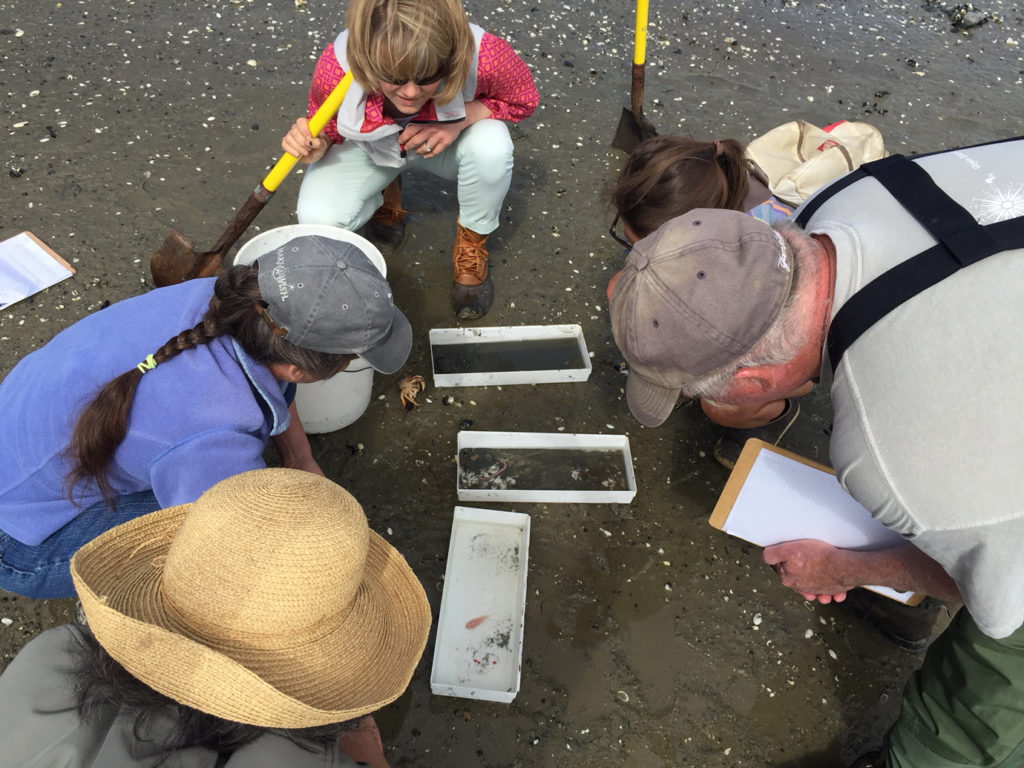We want experiential and place-based education in our island and coastal schools!
That was the common denominator among the 24 teachers, administrators and community partners from 10 schools and organizations who gathered for a 3-day workshop in the third week of June. The summer institute was the result of an education collaboration called SUCCESS (Sustainable Coastal Communities, Educators, Students and Schools) between the Island Institute, the College of the Atlantic and several participating schools and education organizations.
The idea for the summer institute began back in fall 2015 during one of SUCCESS’s bi-monthly meetings. Teachers wanted an extended period of time during the summer to lay the groundwork for experiential and place-based education efforts for the following school year. With input from participating schools, Bonnie Tai, Director of Education Studies at COA and I (Yvonne Thomas, Education Director for the Island Institute) made plans to hold the institute on the COA campus. It’s a beautiful setting in close proximity to inspiring place-based locations such as the Peggy Rockefeller Farm-based summer learning program as well as easy access to the expertise of CoA professors like biologist Helen Hess. Korah Soll and Val Peacock of Rural Aspirations Project helped us provide a range of work levels and options during the institute, so school teams could best meet their individual and group needs.

We participated in team building activities, a panel of teacher and community experts and a tour of Frenchman’s Bay by boat. Throughout the three days, we split into three groups for workshop blocks, based on teachers’ and schools interests and readiness for experiential and place-based education.
The Explore Group encouraged teachers to become students and participate in place-based education firsthand through three distinct experiences; in the green house, at the farm, and on the mud flats. The Envision Group participated in vision processes including empathy and asset mapping that lead to a concrete action plan for experiential and place-based education at their schools. The Design Group brought their specific ideas through a series of steps that lead to creation of an implementation plan.
One of my favorite parts of the three days was joining the Explore group out on the mud flats at low tide. Having the opportunity to go out there with a shovel and literally dig in to learning was exhilarating because, with the help of the instructor and the group, I gained a new understanding of the abundance of life forms just under my muddy boots (think WORMS!) – that, and it was just plain fun! Place-based, experiential education is not just jargon – it is a powerful way to learn for students of all ages.

Yvonne Thomas
Digging in the mud flats
It wasn’t easy to organize the conference in a way that would allow everyone to participate at their chosen level and let people switch from among the three themes, but we pulled it off and the overall response to the summer institute was very positive. Teachers left inspired and with clear next steps for how to move forward in the coming school year. As one teacher commented: ‘Being able to explore some of the local areas and reflect on those experiences was very informative. I appreciate the way the structure of the institute allowed us to individualize the program to meet our needs. I am very excited to use what I learned in my own classroom and to share with my colleagues.’


